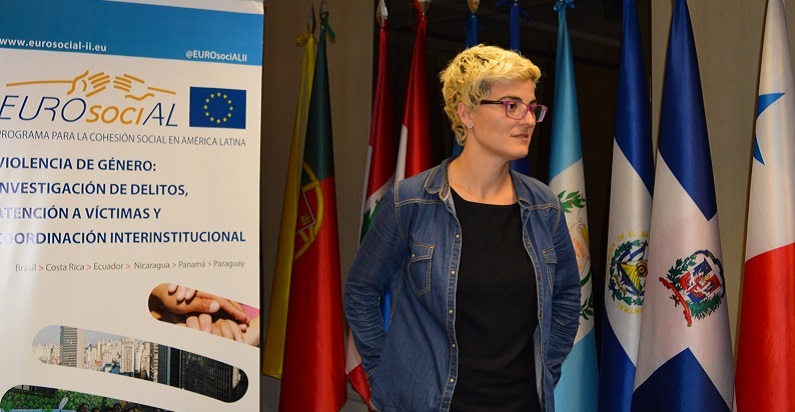-
25 November 2014
Category : Opinion
The fight against gender violence in EUROsociAL
La lucha contra la violencia de género en Latinoamérica ha sido uno de los leitmotiv del Programa EUROsociAL en la contribución al incremento de la cohesión social en la región por dos motivos principalmente: la existencia de experiencias muy significativas en Europa en la materia, como la Ley Integral de Medidas de Protección aprobada en España ahora hace 10 años y por el progresivo posicionamiento del tema como una de las prioridades de política pública en las agendas de los países latinoamericanos.The fight against gender violence in Latin America has been one of the leitmotifs of the EUROsociAL Programmein its contribution to increasing social cohesion in the region for two main reasons: the existence of very significant experiences in Europe in this area, such as the now 10-year old Comprehensive Law on Protection Measures ratified in Spain and the progressive positioning of the issue as a public policy priority on the agendas of Latin American countries.

With good reason, the equality of men and women and protecting women from violence occupies a leading role in the European Union-Latin America Dialogue. The efforts of public authorities and civil society on both sides of the Atlantic continue to be focused on reducing the incidence of a culturally-rooted phenomenon based on persistent inequality, how power is understood and the way that relationships between men and women have historically been structured. The challenge is therefore immense and represents one of the most important hurdles facing institutions, organizations and public decision-makers in the last two decades. The kick-off milestone for American countries was the Belem do Pará Convention on preventing, penalizing and eradicating violence against women, the 20th anniversary of which happens to be this year.
EUROsociAL accompanies institutions in the justice, security, health, employment and education sectors in the region as they explore and deepen public policy solutions to tackle a problem that is both global and multifaceted in its manifestations. The contributions have been varied, from national to regional, ranging from legislative support to the construction of coordination mechanisms and statistical measurement. Here are some of the most significant ones:
April 2008.The Congress of the Republic of Guatemala approves the Law Against Femicide and Other Forms of Violence Against Women.
March 2009. Costa Rica launches the Unified System of Statistical Measurement for Gender Violence.
November 2013. In the AIAMP (Ibero-American Association of Public Ministries), 20 Ibero-American Public Ministries approve the Regional protocol for applying a gender perspective in the investigation of violent crimes against women committed in the family setting.
September 2014-February 2015. Brazil, Costa Rica, Ecuador, Nicaragua, Panama and Paraguay adopt the regional investigation protocol nationally through instruments adapted to the realities of each country affecting investigation by the Public Ministry and its coordination with the police and security forces.
The work from institutions and for institutions at times leaves unaddressed the matter of improving people’s living conditions—the ultimate objective of policies that often require lengthier processes to materialize—in terms of implementation on the ground. EUROsociAL already has a perspective based on 10 years of work in Latin America through its two phases and verification that women now have more mechanisms and resources to ensure their access to justice and social services when victimized by gender violence.
The work perspective for 2015 includes improvement of assistance services to victims of violence in seven countries in the region, within the framework of the protocol for comprehensive assistance to victims backed by the Conference of Ministers of Justice of the Ibero-American Countries (COMJIB), and promotion of over 30 institutions in different sectors involved in this process at the national level.
The views and opinions expressed in this blog are the sole responsibility of the person who write them.






